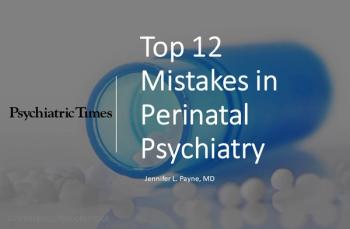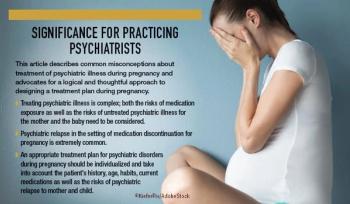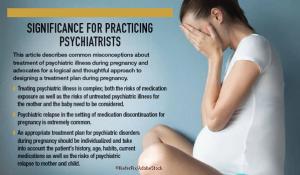
A reproductive psychiatrist discusses the implications of recent FDA announcements on medication use during pregnancy, emphasizing the importance of mental health for mothers and babies.
Dr Payne is professor of Psychiatry and Vice Chair of Research in the Department of Psychiatry and Neurobehavioral Sciences at the University of Virginia, Charlottesville, VA.

A reproductive psychiatrist discusses the implications of recent FDA announcements on medication use during pregnancy, emphasizing the importance of mental health for mothers and babies.

"There is an urgency for competent, thoughtful mental health care for women—not only because the differences have been ignored in the past, but because women’s mental health so often affects health and mental health outcomes for their children."

Loss and suffering can be hard for both patient and provider. Here’s what we know, what we need to learn, and how to protect yourself as a clinician.

Mental illnesses are too often shrouded in secrecy and shame. What would happen if we spoke out about the cases we knew best—the ones in our own families?

Could the emerging field of epigenetics hold the key to catching postpartum depression before it happens?

Dr Payne previews her talk at the upcoming Annual Psychiatric Times® World CME Conference™, reminding us why it is important to take care of mothers postpartum.

Although they may have been the result of good intentions, these mistakes could adversely impact mother and baby.

This article describes common misconceptions about treatment of psychiatric illness during pregnancy and advocates for a logical and thoughtful approach to designing a treatment plan.

This article summarizes the risks of untreated psychiatric illness during pregnancy as well as the risks and benefits of antidepressant use.

Published: August 6th 2021 | Updated:

Published: April 29th 2017 | Updated:

Published: March 11th 2020 | Updated: